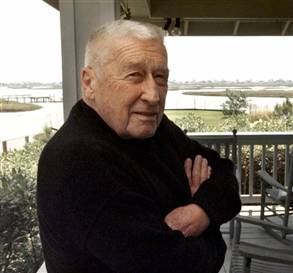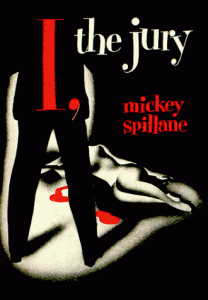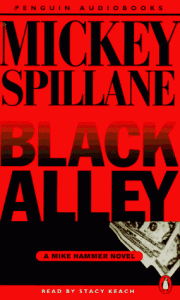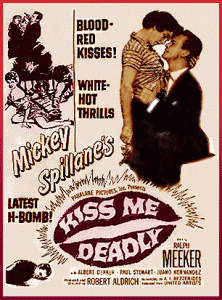 My father didn’t read. Ok, he read the newspaper and model railroading magazines. But fiction? No. The exceptions were located at a shopping spot called the Mart, where stalls contained various low key vendors, meaning, most of the stuff in the place consisted of velvet Elvis paintings, soft pretzels, and troll dolls.
My father didn’t read. Ok, he read the newspaper and model railroading magazines. But fiction? No. The exceptions were located at a shopping spot called the Mart, where stalls contained various low key vendors, meaning, most of the stuff in the place consisted of velvet Elvis paintings, soft pretzels, and troll dolls.
One stall sold paperbacks–or what we believed must be books, the covers were ripped off. The title page was the first thing you’d see. Long before I understood what this meant, I thought it quite odd. Stranger still, the turnstile my dad would go through to get to the genre he preferred. I was not allowed to follow. Those within had no covers either, but I got the drift of the themes when I’d steal glances at the synopsis on the still attached back covers.
Each title had the same violence, sex, and author–Mickey Spillane. As time carried on, and my dad quit reading novels altogether, Mickey Spillane’s importance grew in my eyes. Imagine, the only writer who could entice my father to read more than the headlines or how to power an HO engine! He must be either very very good, or very very good at entertaining. Most critics would say, neither!
For those who aren’t familiar with the hard-boiled fiction writer, Spillane was born in Brooklyn, NY and grew up in North Jersey. At some point, either before or after WWII, Spillane worked on comic books and created a guy named Mike Danger. During the war, he taught flying instruction in Mississippi. (Another reason my dad probably found him alluring–my dad always wanted to learn to fly) Returning to normal life, Spillane needed some money to buy land he and his wife had their eye on. So, his theory was, write a book and earn dough. Oh, that it were that easy!
For him, it was. In only 3 weeks he’d completed a novel called, I, the Jury, with the private eye, Mike Hammer–a later incarnation of his Mike Danger comic–and sent it off to a publisher, Dutton. The rest is bestselling history.
eye, Mike Hammer–a later incarnation of his Mike Danger comic–and sent it off to a publisher, Dutton. The rest is bestselling history.
“More than 225 million copies of his books have sold internationally. In 1980, Spillane was responsible for seven of the top 15 all-time best-selling fiction titles in the U.S.”
The critics despised him. The public loved him. He hated Communism and was well known for his extreme political veiw points, which were reflected in the novels. He married three times, one of his wives was featured bare on a couple of his novels (A fact he happily pointed out, indicating which books)
But Spillane could care less about critical approval. “I don’t give a hoot about reading reviews. What I want to read is the royalty checks.”
Interviewed in 2001, Spillane explained his view of the writing industry: “This is an income-generating job. Fame was never anything to me unless it afforded me a good livelihood.” His sentiments on being a writer : “I’m a commercial writer, not an author. Margaret Mitchell was an author. She wrote one book.” And on other writers: “Hemingway hated me. I sold 200 million books, and he didn’t. Of course most of mine sold for 25 cents, but still… you look at all this stuff with a grain of salt.” And: Those big shot writers could never dig the fact that there are more salted peanuts consumed than caviar”
There were 13 Mike Hammer novels, not a lot compared to many writers today who have written a book a year for a couple of decades, but these stories changed the publishing world. Not just in style and content, but in how books were published. His hard cover I, the Jury sold well, but when the paperback version was released, all publishing hell broke loose and from that point on paperbacks took center stage, with new publishers created to fill in the demand for the product. Without Spillane, several paperback publishers wouldn’t have existed. He wrote an equal amount of titles without Hammer.
Yet, troubling aspects of his work include his depictions of women, and minorities. Women were treated badly, as sex objects violence towards them abounded. Black characters were either domestics or criminals. Mike Hammer’s relationship with Velda, his long patient and suffering secretary, was wacky, weird, and bizarre. He had sex with various and sundry women, and yet Velda was always there waiting. In his last published Hammer title–Black Alley–he lets them marry! Or, I’m almost sure they made it to the altar, the entire book was leading up to the momentous occasion. A footnote–the author Max Allan Collins set the record straight regarding Spillane’s supposed exaggerated sex and violence. And stereotyping. He points out that many of the writers at the time use stereotypes (which I know is true, I still come across them all the time reading Golden Age mysteries) and Spillane later had some strong non stereotypical characters in his books. He added that Spillane’s female characters, although evil, were darn strong women. And I agree.
 And it’s with the publication of Black Alley, that I first met Mr. Spillane. Out of nowhere, a great buzzing was floating up from downstairs in the bookstore in which I worked, where the paperbacks were sold. An out of place, excited kind of thing. Upon investigating I came face to face with my dad’s writing hero. I was speechless. He was friendly, bouyant, and self effacing, while we stood in awe of an icon, a man larger than life. Besides his novels, he was famous for acting in a few films, in one he played Hammer, and there were all those Miller Lite commercials in the 80s, which kept his name recognizable and personality unique. I grabbed a copy of Black Alley, and he graciously inscribed it for me. My dad wasn’t well at this point, although still cognizant, so I asked for the dedication to be to him. I was thrilled. The visit was brief. Although born in NYC, he hated it, and only came up once in awhile for reference, as his character Hammer lived there.
And it’s with the publication of Black Alley, that I first met Mr. Spillane. Out of nowhere, a great buzzing was floating up from downstairs in the bookstore in which I worked, where the paperbacks were sold. An out of place, excited kind of thing. Upon investigating I came face to face with my dad’s writing hero. I was speechless. He was friendly, bouyant, and self effacing, while we stood in awe of an icon, a man larger than life. Besides his novels, he was famous for acting in a few films, in one he played Hammer, and there were all those Miller Lite commercials in the 80s, which kept his name recognizable and personality unique. I grabbed a copy of Black Alley, and he graciously inscribed it for me. My dad wasn’t well at this point, although still cognizant, so I asked for the dedication to be to him. I was thrilled. The visit was brief. Although born in NYC, he hated it, and only came up once in awhile for reference, as his character Hammer lived there.
At the 1995 Mystery Writers of America Edgar A. Poe Awards banquet, Mickey Spillane was honored as Grandmaster, a title held by the most prestigious authors in the crime fiction world. He was delighted, and delightful. I was able to speak with him for a bit this time, but but not long enough, lol. As you can imagine, his plate was full of people wanting his attention, and I was flattered that he took time to take photos with me and talk about my father’s love of his work. I knew his reputation as a tough guy right wing fanatic, but saw nothing remotely like that persona. He was a spirited funny guy, honest, forthright and not about to put on airs just because he finally had Poe in his hands. He signed my program, along with many other great authors that attended.
The third, and final time I was in his presence was at the Museum of Radio and Television for a documentary about his life, by fellow writer Max Allan Collins, who has the privilege of overseeing Spillane’s legacy, and does a remarkable job at it. All sorts of glittering personages attended, including the elusive Sue Grafton, but it was Spillane, of course, who dominated the spotlight. As well he should. His influence on crime fiction is legendary, whether you enjoy his violent and sex driven plots, or not.
When the film had concluded my husband prodded me forward and I nervously approached Spillane, asking if at some point I may interview him for a newsletter I wrote. He seemed quite happy to oblige! So much so, he invited me down to his home in the South, and if I wasn’t able to travel, to call him personally. He made sure I had his private number by writing it in one of his books I had on hand. He chatted extensively with us, introduced his lovely wife, and was perfectly gracious–a far cry from the Mike Hammer of his novels. But I could tell, just below the surface that tough guy was ready and willing to appear, if needed for any reason, and that was actually rather comforting!
Based on my few experiences, I liked him a great deal. Much more than I expected to if one only went by reputation. But the little kid who watched her dad go through the turnstile in order to buy one of Mr. Spillane’s books, was terrified of actually asking the legend questions. A coward to the core, was I. Thank goodness he never knew just how silly I was about him, I feel he would have had some choice words to relay to me regarding my gutless being, lol. Unfortunately, I never contacted him about the interview–a fact my husband has never forgiven me for! And that I’ve never forgiven myself. How fantastic it may have been to be able to speak one on one with a master writer, not author, and learn from his time honed experience. Sigh.
only went by reputation. But the little kid who watched her dad go through the turnstile in order to buy one of Mr. Spillane’s books, was terrified of actually asking the legend questions. A coward to the core, was I. Thank goodness he never knew just how silly I was about him, I feel he would have had some choice words to relay to me regarding my gutless being, lol. Unfortunately, I never contacted him about the interview–a fact my husband has never forgiven me for! And that I’ve never forgiven myself. How fantastic it may have been to be able to speak one on one with a master writer, not author, and learn from his time honed experience. Sigh.
My dad was too far gone with Alzheimer’s for me to relate any of this to him, which is good, because he would have been soooooo disappointed in a daughter who shied away from his favorite, and only writer. But, then again, he may have understood the feeling of awe. I wonder how he would have reacted to meeting the one person who was able to sustain his attention enough to finish an entire work of fiction? I believe they would have gotten on together like a couple of guys who fought in a war, grew up in tough times, and never stopped being who they really were.
I’ll end with one of the best statements about writing a mystery ever made. He said:
“Nobody reads a mystery to get to the middle. They read it to get to the end. If it’s a letdown, they won’t buy anymore. The first page sells that book. The last page sells your next book.”
Footnote:
 Kiss me Deadly is a fantastic wild weird ride of a film based on Spillane’s novel of the same name. Although I’m don’t think Spillane liked any of the film adaptations, this one is worth watching, even if it isn’t up to the master’s snuff.
Kiss me Deadly is a fantastic wild weird ride of a film based on Spillane’s novel of the same name. Although I’m don’t think Spillane liked any of the film adaptations, this one is worth watching, even if it isn’t up to the master’s snuff.
“ I don’t like any of them, because they don’t read the books. In Kiss Me Deadly my story is better than his story. Anthony Quinn played in The Long Wait and he didn’t read the book either. “
“I know an awful lot of Hollywood people, who are so self-important, I can’t understand it.”

This is a lovely piece about Mickey, far superior to the smiling hatchet job by Lawrence Block in the current MYSTERY SCENE.
I would say the notion that minorities and women are treated any worse in Spillane than in the work of his most esteemed contemporaries is a kind of urban myth. Chandler’s women are portrayed in much the same way, for example, and slang terms and general attitudes about blacks and gays are similarly politically incorrect (even in later works like THE LITTLE SISTER). Spillane’s women — though sometimes villains — tend to be strong. The relationship between Hammer and Velda is odd, and shifts over the years, but it can’t be denied she’s a strong, tough, surprisingly independent woman…and a PI who carries a gun and wades into action with and without Mike.
In Mickey’s final Mike Hammer, THE GOLIATH BONE (which I completed, and in which Hammer and Velda do marry), he created a very strong black character — an ex-cop — who aids Hammer in several chapters and is portrayed very much his equal. Though they are not frequent, positive black and Hispanic characters do pop up in supporting roles in Spillane’s work.
Max! How wonderful for you to stop by! I hadn’t known you finished Spillane’s work until I was researching a bit for the article. I’ve been out of the loop for awhile, obviously.
I’m sorry Block didn’t do Mr. Spillane justice–I don’t know, maybe some people, like Hemmingway are jealous? Ha.
I didn’t mean to make it seem as though Spillane alone was guilty of these types of stereotypes or violence against women–heavens, just pick up a any serial killer book today–probably far worse than he ever wrote. And you are absolutely right–the women are strong bad assed people, lol. Which I do appreciate. And I’m glad you commented and straightened it out as an urban myth–because although I’ve read Spillane, I can’t say I’ve read everything, and I was going by the general consensus. I’ll put in a footnote about your comment, so those who read it now get a better picture.
Now I need to get a hold of The Goliath Bone, I really do want to see those two kids married, lol!
A strong piece on a strong figure in the American fiction lexicon. Spillane not only established the “tough guy” gumshoe for so many others after him, but always layered Hammer with a vulnerability that gave him redeeming qualities. He was tough, but he wasn’t Superman.
He not only had ground breaking effects on publishing, but on the whole concept of cover art. Several paperback covers had to have the artwork altered over time to accommodate more conservative audiences. If you look at the releases in sequence the females on paperback covers had more and more clothing in each subsequent printing Its an intersting way to track trends as the moral landscape changed between the late forties and the fifties.
Regardless, Very enjoyable. Keep them coming.